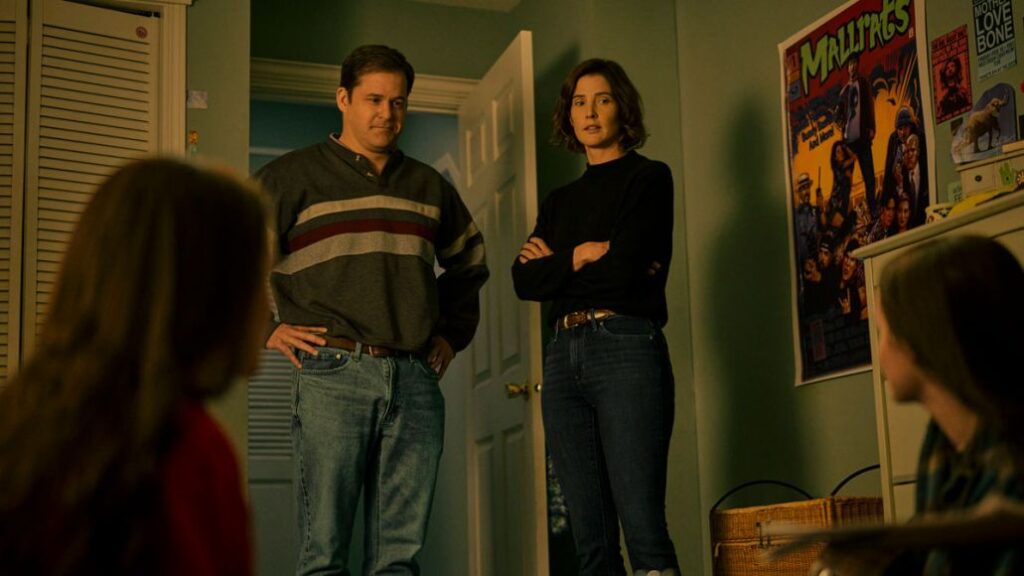“I’m really excited that we get to see queer art from the ’90s,” executive producer Tegan Quin tells Consequence about High School. Based on the memoir written by Quin and sister/longtime collaborator Sara Quin, the new Freevee series takes a unique approach to adaptation, anchored by solid debut performances by Railey and Seazynn Gilliland as twins named Tegan and Sara, whose complicated relationship becomes stronger as they discover a mutual love for writing and performing music.
Thanks to showrunners Clea DuVall (who also directs multiple episodes) and Laura Kittrell, the series serves as both an authentic portrait of Tegan and Sara’s experiences growing up in the 1990s as well as a relatable narrative capturing the essence of growing up and discovering your true potential.
Below, the Quin sisters and the Gilliland sisters, as well as DuVall, Kittrell, and co-stars Cobie Smulders (who plays Simone Quin, the twins’ mother) and Kyle Bornheimer (who plays Patrick, the twins’ stepfather) dig into key questions surrounding the series, including the importance of keeping the show a period piece, their favorite needle drops from the first season, their thoughts about future seasons, and…
Does High School Feel Like a Biopic?
It’s not uncommon for the life stories of musical artists to inspire movies and TV shows. But this series ends up being something unique, which is why the cast and showrunners have different perspectives on this question.
Laura Kittrell: I mean, when you’re saying that out loud, I’m like, “Yeah, that is what it is.” But it never really, it never really crossed my mind to be honest. And I don’t know if it’s because it’s TV or if it’s just because of the specific story that we’re telling. Also, a lot of it’s obviously very inspired by the memoir — Tegan and Sara are real people; they have real parents, they have real friends — but a lot of the characters either became amalgamations or were invented or things that they were doing were invented by us. I think the further that we got from the book, the less it would feel like we were doing a full biopic.
Cobie Smulders: For me, it did very much, because of the period that we were shooting — it felt like we were jumping back in time. That lent itself to feeling like we were telling a story of the past, thus a biopic. And also I was always sort of thinking about this family dynamic and really trying to make it feel realistic. So I was constantly thinking of the family and what that would be like. So it did always feel like we were shooting something that was a true story.
High School (Freevee)

